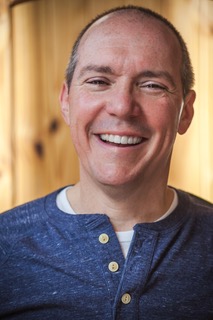 This is a guest post by Roger Hall, PhD and Business Psychologist.
This is a guest post by Roger Hall, PhD and Business Psychologist.
I believe Yoga Berra: “Ninety percent of baseball is mental, the other half is physical.”
Anyone who is successful at any thing is mostly successful because of his or her mental discipline. This is true for any profession.
For example, take a car mechanic: I was talking to a mechanic who was working on my car a while back, and I asked, “How did you figure that out?” He said, “You know what, it’s just thinking it through.” His success was all about his thinking. It’s not that he knows how to turn bolts better than me, (though he does). It’s that he knows how to think better about the cause and effect of systems in cars than me. If you are a golfer (and I’m not), you’ll know that golf is a mostly a mental game.
In professional sports, the physical differences are tiny. Success or failure at that level is all mental. The skills that make professional athletes successful are the same skills that make professionals and business owners successful.
How do you discipline your thinking?
If you are a business owner, or leader, or any one who is in charge of other people – if you want to be successful – it’s all about mental discipline. Almost everything is predicated on how well you train yourself to think.
Elvis Costello is one of my favorite musicians and this is a lyric from his song Satellite. “It’s like she learned to dance from a series of still pictures.” What does that sound like? Robotic. Stilted. Not smooth. Awkward. If someone learns to dance from a series of still pictures, how do they dance? NOT VERY WELL.
Most people think “You know what? I can learn to be a leader by reading a leadership book.” That’s like learning to dance from a series of still pictures. There is nothing wrong with reading books, and I guarantee you everyone who is great at their task has read books about their task. But people who are very, very successful, don’t stop there. If you want to be great, you have to do more than just read. Reading is necessary, but you have to have somebody who will show you how to do it. ou need an advisor, mentor, or coach. Name a great performer who doesn’t have a coach. What will your advisor do? He or she will make you stop and think.
Who is telling you the truth about your leadership approach?
Leaders take the time to stop and think. Once you start thinking, you will realize how distracted you have been. You will discover the mental errors you make. You will learn the lies that you believe and you will be changed. People ask me all the time, “What exactly is leadership development?” It is PERSONAL DEVELOPMENT for people in leadership positions. Personal development always changes those who undertake it.
Why don’t people engage in personal development? Because it is embarrassing.
Do you remember when you were in the 8th grade and one of the school hooligans taped an “I’m an idiot!” sign on the back of the awkward kid? What if he walked around the whole day with the sign on his back and no one told him? When someone finally did tell him, he was shocked, them embarrassed, then probably a little angry. “Why didn’t anyone tell me?” probably ran through his head.
That’s how it is with personal development. At some point, you’ll learn about some blind spot you have. First you’re shocked, then embarrassed, and then maybe a little angry that no one old you. That’s why many leaders never work on themselves. It is too embarrassing to learn what they’d rather ignore. I guarantee you that your people won’t tell you either. It is a truism that the least well-informed, most lied to person in any organization is its president. Why? Not because the president doesn’t want to know the truth, but because everyone wants to please the president, so they lie. Leaders need an objective sounding board. Someone who will tell them the truth as best as they see it.
Who will guide you to become a better version of yourself?
No one will follow a leader who hasn’t been there before. Following a map, like reading a book is good, but what’s better than a map? A guide! Follow someone who has already been there. Leaders cannot lead past where they have already been. If you want to be a leader, develop yourself. You have to go to the places others won’t or don’t go. You’ll need a guide to help you along the way. Once you work on yourself, then people will want to follow you.
One of the remarkable tragedies about Mt. Everest was recorded in a book called Into Thin Air. Find it if you want to read a very compelling story about a horrible disaster. Sixteen people died in one day on the top of Mt. Everest. There were cargo vans full of people trying to summit that day. The leaders who were taking people to the top were not experienced on Everest. They were a little bit better than those who followed them, but not consistently. They were not experts.
The hero of the day was a seasoned climber who decided not to go for the glory and summit the mountain that day. He stopped, observed the traffic jam of people trying to summit, observed some sketchy weather, and elected to stay still. He stayed in Base Camp and listened to the radio chatter as more and more people got into trouble. It was only later, when people began falling off the mountain, did he act. He’s the one that went up later to rescue those who followed bad leaders. Disasters occur when people follow leaders who haven’t done the prerequisite work. If you want to be a great leader, you’ve got to do the work on yourself.
About the Author:
 Dr. Roger Hall is the author of Staying Happy Being Productive: The Big 10 Things Successful People Do and Expedition. He is a Business Psychologist with clients all over the country. His clients are entrepreneurs, professionals, and business owners. He is especially qualified to help entrepreneurs who have had a financial event find meaning, purpose, and happiness for the next phase of their lives. He helps leaders become better versions of themselves so they can lead their people better. He has had the chance to consult and speak to all sorts of groups, from judges in federal courts, people in the intelligence community, company owners, executives, and university faculty, to social workers, teachers, and nurses, to construction workers, landscapers, and box-makers. He loves his work as a keynote speaker for financial services companies, judges, and technology companies.
Dr. Roger Hall is the author of Staying Happy Being Productive: The Big 10 Things Successful People Do and Expedition. He is a Business Psychologist with clients all over the country. His clients are entrepreneurs, professionals, and business owners. He is especially qualified to help entrepreneurs who have had a financial event find meaning, purpose, and happiness for the next phase of their lives. He helps leaders become better versions of themselves so they can lead their people better. He has had the chance to consult and speak to all sorts of groups, from judges in federal courts, people in the intelligence community, company owners, executives, and university faculty, to social workers, teachers, and nurses, to construction workers, landscapers, and box-makers. He loves his work as a keynote speaker for financial services companies, judges, and technology companies.
Roger received his Doctorate in Psychology from Ohio State University in 1991. He has worked with thousands of leaders – from Fortune 20 companies to small entrepreneurial firms. He is currently an executive coach for the Robert Wood Johnson Foundation Clinical Scholars program. He and his wife live outside Boise Idaho where they watch the osprey fish from a nearby stream and the elk eat their shrubs. You can learn more about Dr. Hall at: www.compassconsultation.
Leave a Reply